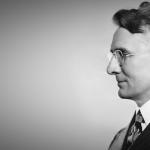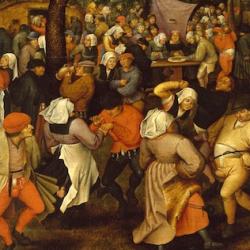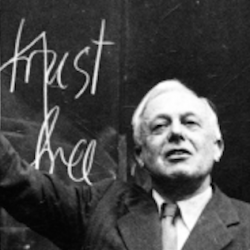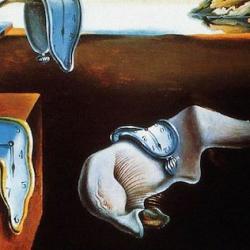The key question regarding Freud, says Rosenstock-Huessy (In the Cross of Reality, 266), is “Whom did Freud obey when he began to develop his theory?”
The question arises because “in Freud’s relational system there is no place for Sigmund Freud’s own experience.” He shares this distinction of an un-theorized self with Schopenhauer, Marx, and Nietzsche. None of them has a place for himself “as originators, as authors, as Yous.”
It’s not a foregone conclusion that such seminal figures (“new souls,” as Rosenstock calls them). “An ethereal spirit like Marx could not be tolerated” in the classless society he hopes for. The mere fact that “there can be Freuds living among us is clearly a more important fact than psychoanalysis” (266).
Freuds can only arise when they glimpse a unity in the complexity of human experience, a unity that Freud thinks to be impossible. A Freud has to be “called by a new imperative to be a bearer. He put himself forward as the model [Vor-Wurf] for all mankind, as a preject. He withstood the mandate. Such mandates ‘exist.’ He replied wholeheartedly to the call,” and as a result of his response to the You he became an I and gave birth to a “we,” the psychoanalytic movement. In short, “He embodied himself gramatically and traversed his You, I, and We. Now he stands before us as an objective He” (266). Yet, Rosenstock says, there is nothing in Freudian theory that can make sense of such a coherent development.
Rosenstock calls Freud a “gravedigger” of bourgeois decadence: “Freud created an alternate Cross of Reality with his Ego, external world, Super-ego, and Id, because the surrounding reality of 1880 was falling apart. Freud felt it falling apart, and he felt the decadence of Viennese society. . . . although most gravediggers just shovel their corpses into the grave, this ingenious gravedigger of bourgeois society laid bare its anatomy” (267).











